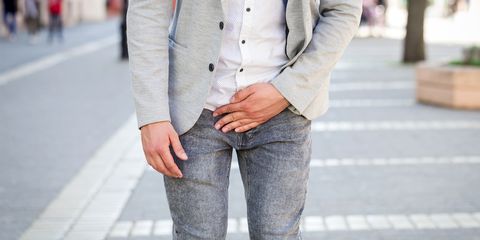Introduction
Jock itch (tinea cruris) is a common fungal infection that affects the skin of the groin, inner thighs, and buttocks. It's caused by a type of fungus called dermatophytes, which thrive in warm, moist environments. While jock itch can be itchy and uncomfortable, it's usually a mild infection that responds well to treatment.

This condition is more common in men and adolescent boys, but women can also experience jock itch. It's often associated with sweating, tight clothing, and humid weather.
Symptoms of Jock Itch
Jock itch typically presents with a red, itchy rash in the groin area. The rash may have a circular or ring-like appearance, with a raised border and clearer skin in the center. Other common symptoms include:
- Burning or stinging sensation
- Flaking, peeling, or cracking skin
- Redness and inflammation
- Small, fluid-filled blisters
Causes of Jock Itch
As mentioned earlier, jock itch is caused by dermatophytes. These fungi are commonly found on the skin and usually don't cause any problems. However, in warm, moist environments, they can overgrow and lead to an infection.
Factors that can increase your risk of developing jock itch include:
- Excessive sweating
- Wearing tight-fitting clothing
- Warm, humid weather
- Obesity
- Weakened immune system
- Contact with an infected person
- Sharing towels or clothing with an infected person
Treatment for Jock Itch
Most cases of jock itch can be effectively treated with over-the-counter antifungal creams, powders, or sprays. Common antifungal medications include clotrimazole, miconazole, and tolnaftate. It's essential to follow the instructions on the product label and continue using the medication for the recommended duration, even if your symptoms improve.
In addition to antifungal medications, you can take steps to manage your symptoms and prevent the infection from spreading:
- Keep the affected area clean and dry.
- Wear loose-fitting clothing made of breathable fabrics, like cotton.
- Avoid scratching the rash, as this can worsen the infection.
- Wash your workout clothes after each use.
- Don't share towels or clothing with others.
When to See a Doctor
If your jock itch doesn't improve after a couple of weeks of home treatment or if your symptoms are severe, consult a healthcare professional. They can determine if you have jock itch or another condition and recommend the most appropriate treatment.

.jpg)